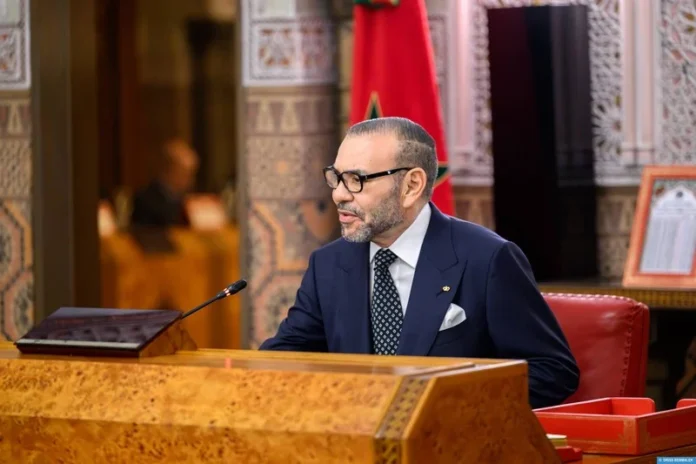On Sunday, October 19, 2025, the day was far from ordinary at the Royal Palace of Al-Isma’ma in the capital Rabat; it marked a moment of reflection on the trajectory of the state and how its highest authorities navigate economic, social, and political challenges simultaneously. Under the high guidance of His Majesty King Mohammed VI, a Council of Ministers convened to review the general orientations of the 2026 Finance Bill, several organic law projects, two military decrees, as well as a series of international agreements and senior appointments.
At the heart of this meeting, the presentation by the Minister of Economy and Finance was not merely a list of numbers and statistics. It was a forward-looking analysis of the national economy in a world dominated by uncertainty: expected growth of 4.8%, limited inflation at 1.1%, and a budget deficit contained at 3.5% of GDP. These indicators are not just technical successes; they reflect Morocco’s ability to balance internal productive dynamics with external uncertainties. Yet, the question arises: will these figures suffice to absorb upcoming shocks, or is the state walking a delicate tightrope?
Priorities of the Finance Bill: Between National Economy and Regional Justice
The bill is built around four major priorities. The first focuses on consolidating economic gains and strengthening Morocco’s position among emerging nations. Emphasis on private investment, green hydrogen, and support for very small, small, and medium enterprises places employment and regional justice at the center of economic planning. The crucial question remains: can these investments and support programs for youth and women redraw the employment map in vulnerable regions, or will regional disparities persist?
The second priority concerns the new generation of integrated regional development programs, aimed at reinforcing local specificities and advanced regionalization. People are placed at the center of development. But can such ambitious projects truly create balance between wealthy and marginalized areas? Will ordinary citizens tangibly perceive the effects of these policies on the ground?
Third, the Social State: Protection, Support, and Inclusion
Continuing the project to generalize social protection and provide financial support to families reflects a high royal vision for the social state. Yet, the question arises: are these measures sufficient to overcome deep social inequalities, or are they merely the beginning of a long path requiring continuous reassessment of program effectiveness?
Fourth, Structural Reforms: Towards Sound Governance and Financial Transparency
Reforms related to the Organic Law on Finance and the restructuring of public institutions and enterprises represent an attempt to establish a new governance model. The challenge remains in implementation: how can the desired results be achieved in a complex administrative and economic environment, sometimes resistant to change?
Organic Laws and Military Decrees: Building the State from Within
Projects concerning the House of Representatives and political parties reflect the desire to strengthen transparency, encourage youth and women participation, and safeguard institutions. The two military decrees aim to ensure the efficiency of defense apparatus and modernize the military health system. A fundamental question arises: can these major institutional reforms be effectively implemented on the ground to keep pace with social and economic dynamics?
Appointments and International Agreements: Signs of Continuity and Strategic Positioning
The new appointments of Walis, governors, and the Chairman of the Moroccan Capital Market Authority, alongside the ratification of international agreements, reflect the state’s determination to link internal reforms to strategic external positioning. But are these initiatives sufficient to bolster citizen and investor confidence? Can Morocco transform these policies into effective tools for sustainable development?
Ultimately, this Council of Ministers goes beyond a mere display of numbers and decrees; it is a moment of reflection on the balance between His Majesty’s elevated guidance, state mechanisms, and citizens’ aspirations. Between official documents and statistics, between numbers and human reality, the question remains open: will the 2026 Finance Bill mark a true turning point in the national development trajectory, or remain a regulatory framework facing the test of complex realities?




